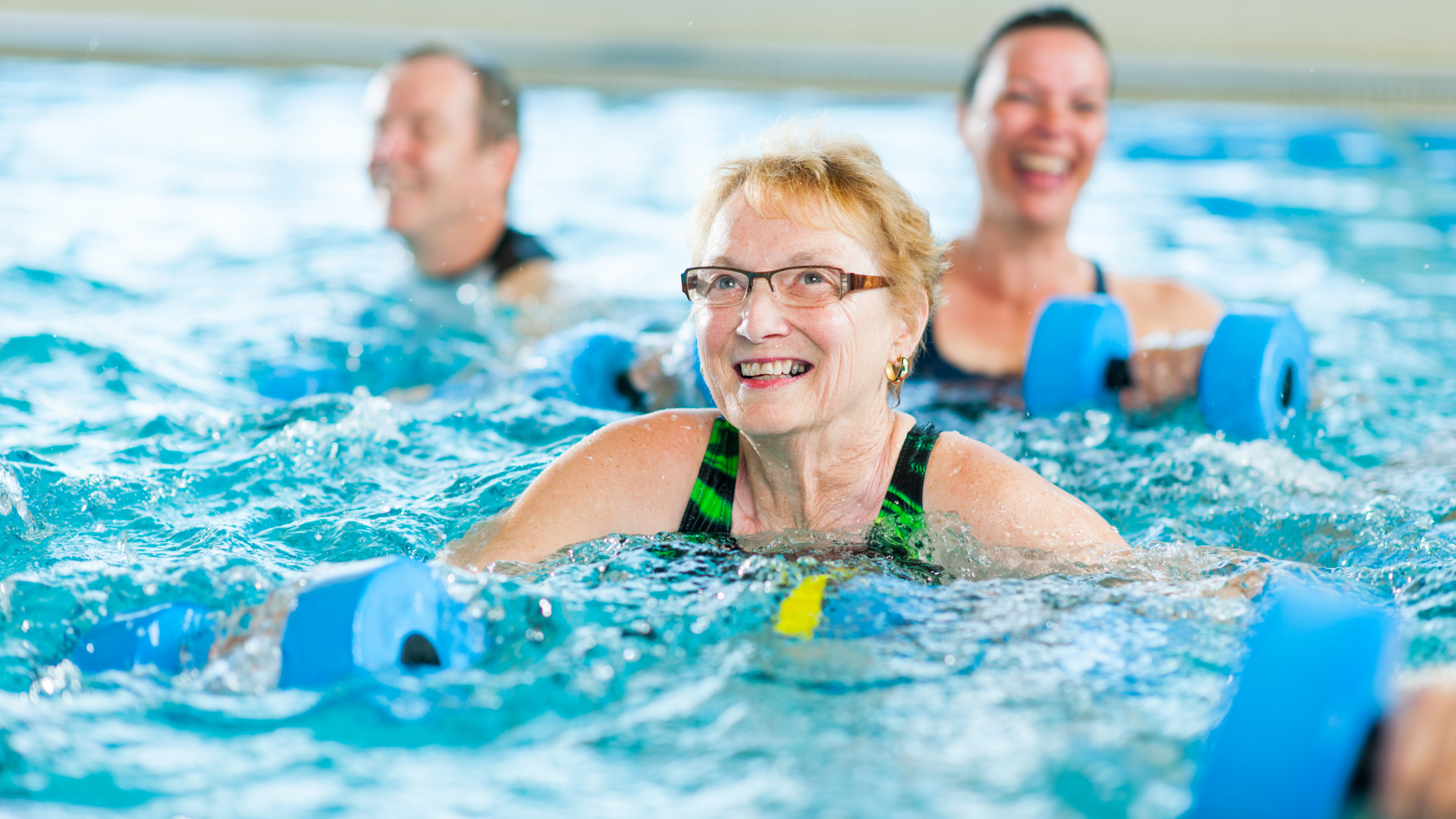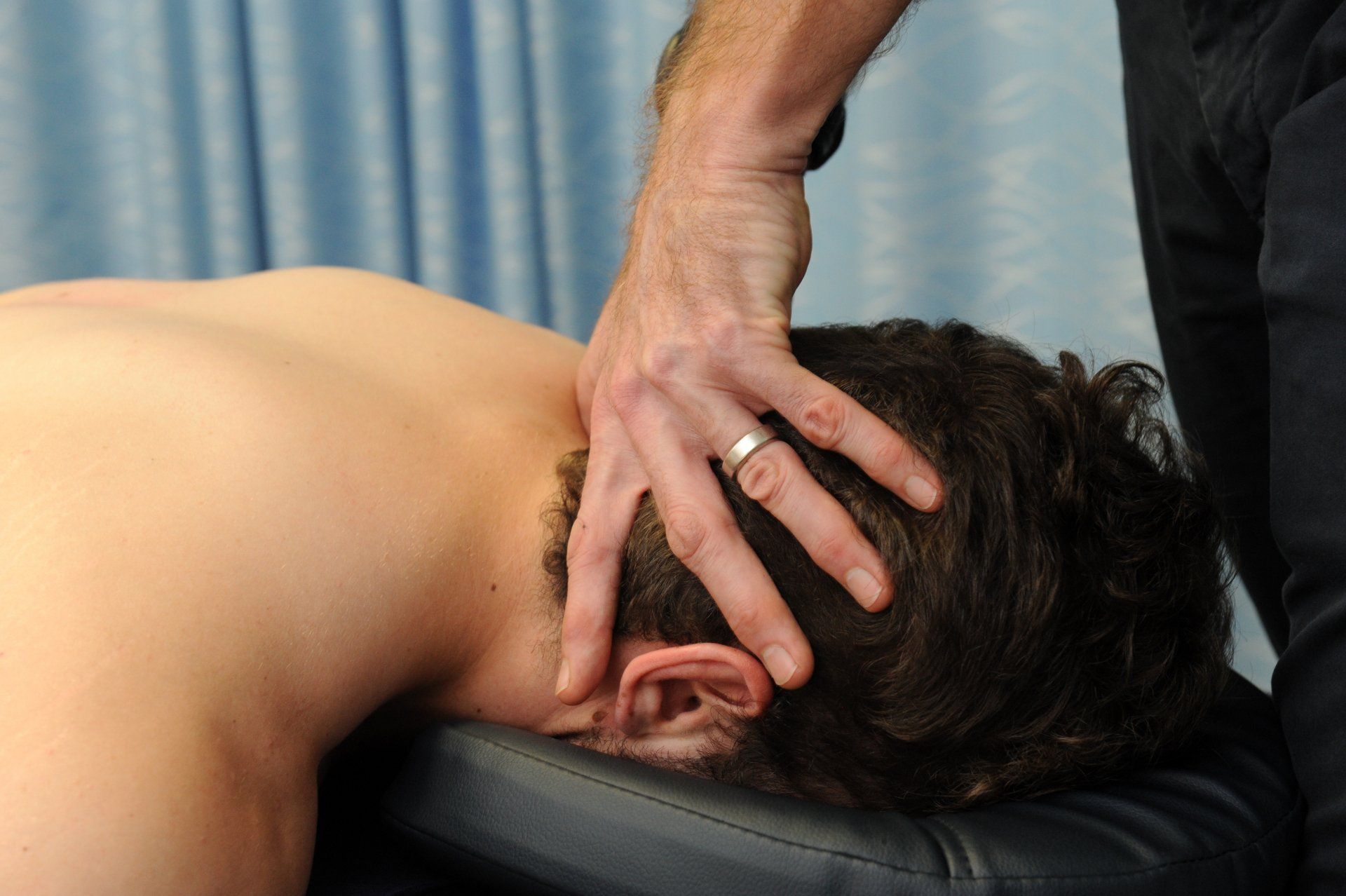Heart Health - Hydrotherapy for Chronic Heart Failure
Hydrotherapy is a great exercise medium if you have chronic heart failure.

Chronic heart failure (CHF), also known as congestive heart failure, is a clinical syndrome characterized by the inability of the heart to pump blood adequately to meet the body's metabolic demands. A prevalent condition within the Australian community, over 110,000 people live with CHF. Fortunately, research over the past 30 years has significantly improved the treatment and management of this condition, resulting in improved outcomes and quality of life.
Exercise and physical activity for people with chronic heart failure
Individuals diagnosed with CHF are routinely advised to engage in physical activity by their health care team.
Exercise based rehabilitation programs have consistently shown improvements in
patient reported symptoms, exercise tolerance and quality of life.
Traditional land-based exercise approaches often include stationary cycling, walking, and resistance exercises. While effective, these may not be suitable for all patients, particularly those that are elderly or frail, or who have limiting co-morbidities such as chronic pain, osteoarthritis, or balance issues. This can lead to reduced participation in physical activity, greater deconditioning, and increased risk of mortality.
Hydrotherapy – an effective alternative to land-based exercise
Hydrotherapy has been used for the management for chronic heart failure (CHF) for decades and is an attractive and effective alternative to conventional land-based exercise and has been shown to have significant benefits for individuals living with CHF. The low-gravity, temperature-controlled environment promotes muscle relaxation, reduces muscle and joint stiffness, and improves the dilation of the peripheral blood vessels.
The hydrostatic effect of immersion in warm water is associated with increased blood flow back to the heart,
thereby reducing blood pressure and improving cardiac output.
It also improves kidney and nerve activity and reduces blood plasma levels of certain hormones such as epinephrine, renin, and aldosterone, which further helps regulate blood pressure and thoracic blood volume. Pretty impressive.
The warm water environment provides a great medium for performing both aerobic and strengthening exercises and thereby reversing de-conditioning and improving functional capacity. Movement against the resistance of the water increases the heart rate and respiratory rate, improving aerobic capacity. By utilising different speeds of movement and equipment to modify the resistance load, muscle can be strengthened, toned, and gently stretched, improving land-based function and balance.
Hydrotherapy’s your friend, with benefits.
For those people who have co-morbidities such as osteoarthritis, back pain, or chronic pain, hydrotherapy will likely have a positive impact on these conditions as well. Resistance exercises aimed to improve cardiovascular fitness will also strengthening weak, deconditioned muscles in affected areas. The warm-water environment releases endorphins that will improve mood. In addition to stretching stiff joints and strengthening muscles, hydrotherapy promotes relaxation and a sense of well-being that in turn can have a positive impact on mental health and motivation.
Outcomes of Hydrotherapy for people with CHF
The research on hydrotherapy for people with CHF consistently reports improvements in quality of life and functional capacity, particularly activities of daily living. When undertaken regularly (30-60mins, 3 times a week) and consistently, hydrotherapy can contribute to a reduction in blood pressure and heart rate, and improvements in heart function. This positive effect of hydrotherapy can be further augmented through the addition of a land-based exercise program if able.
Importantly, hydrotherapy is not a replacement for pharmacological and medical management.
A multi-disciplinary team approach to the management of CHF is critical to achieving
sustainable long term positive outcomes.
Accessing Hydrotherapy with CHF
Hydrotherapy sessions are delivered in a variety of ways to cater for the different needs of individual patients. One on one sessions are required in the introductory phase to ascertain exercise tolerance and develop a suitable program. Once an individual is safe and understands their program, they may attend group sessions that are supervised by a physiotherapist.
Those individuals with mild CHF may be suitable to attend open pool sessions where there is no physiotherapist supervision. Alternatively, if their exercise tolerance permits, attending aqua aerobics classes may be suitable. We strongly recommend that you discuss these options as they arise with your treating medical practitioner.
The Take Home
For patients with chronic heart failure, hydrotherapy is well tolerated and associated with significant improvement in exercise capacity, functional capacity, and quality of life. Hydrotherapy is a useful alternative for many elderly patients with CHF who are limited in their ability to participate in land-based activities, simultaneously improving heart function as well as other disorders that impede normal activities of daily living.
Got a heart complaint or want to improve your heart health? Give us a call.
Movement For Life Physiotherapy operates a purpose-built hydrotherapy pool at their Coconut Grove clinic. This facility is maintained at a constant 33-35oC, has both ramp and chair hoist access, and is perfect for undertaking regular exercise for conditions such as chronic heart failure. Classes and individual appointments are available daily Monday to Friday.
For more information and pricing, please contact us on 08 8945 3799.
Sources
- Adsett, J. A., Mudge, A. M., Morris, N., Kuys, S., & Paratz, J. D. (2015). Aquatic exercise training and stable heart failure: A systematic review and meta-analysis. International journal of cardiology, 186, 22-28.
- Caminiti, G., Volterrani, M., Marazzi, G., Cerrito, A., Massaro, R., Sposato, B., ... & Rosano, G. (2011). Hydrotherapy added to endurance training versus endurance training alone in elderly patients with chronic heart failure: a randomized pilot study. International journal of cardiology, 148(2), 199-203.
- Cider, Å., Sveälv, B. G., Täng, M. S., Schaufelberger, M., & Andersson, B. (2006). Immersion in warm water induces improvement in cardiac function in patients with chronic heart failure. European journal of heart failure, 8(3), 308-313.
- Graetz, B., Sullivan, M., Robertson, T., & Reeve, J. (2015). Do hydrotherapy exercise programmes improve exercise tolerance and quality of life in patients with chronic heart failure? A systematic review.
- Michalsen, A., Lüdtke, R., Bühring, M., Spahn, G., Langhorst, J., & Dobos, G. J. (2003). Thermal hydrotherapy improves quality of life and hemodynamic function in patients with chronic heart failure. American heart journal, 146(4), 728-733.
- Municinó, A., Nicolino, A., Milanese, M., Gronda, E., Andreuzzi, B., Oliva, F., & Chiarella, F. (2006). Hydrotherapy in advanced heart failure: the cardio-HKT pilot study. Monaldi Archives for Chest Disease, 66(4).
- Grüner Sveälv, B., Cider, Å., Täng, M. S., Angwald, E., Kardassis, D., & Andersson, B. (2009). Benefit of warm water immersion on biventricular function in patients with chronic heart failure. Cardiovascular ultrasound, 7, 1-8.








